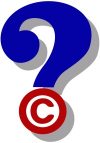Dear Doc:
Digital readers such as the Kindle have become the way that many people borrow books from the public library. It’s like going to the library digitally: you have to wait for a copy to become available, and you can “take it out” for a limited time, after which it disappears from your device. I understand that this kind of borrowing may not apply to lots of older and out-of-print books. What gives?
Signed,
Kindled
Dear K:
Publishers make many books available to libraries digitally, and systems like Libby control how these are borrowed. Libraries have to purchase a number of virtual copies, just like they ordered multiple copies of physical books in the past if they wanted to loan them out to several patrons at once. For older works that are still covered by copyright, however, publishers don’t usually invest in making digital copies since too few borrowers exist for the publisher to make money, so libraries have few options.
Knowing that many books going back to 1930 are protected by copyright law but are not available digitally, some legal scholars have theorized that it is OK for libraries that own one or more physical copies of such books to scan them and lend the digital version, as long as the actual book is not lent out at the same time – this is called “Controlled Digital Lending” or CDL. See, for example, works by Michelle M. Wu and David R. Hansen and Kyle K. Courtney.
Not to get too far into the legal weeds here, but legal scholars have combined two separate rules to argue that “Controlled Digital Lending” is legal. These rules are the “First Sale Doctrine,” which is a principle of copyright law that says that once you legitimately own a book, you have the right to sell it to someone else, or to loan your copy out, and there is nothing that the copyright owner can do about that; and “Fair Use,” which excuses copying in certain instances. Libraries believe that CDL helps provide better access, especially for books that are out of print and that publishers are not digitizing. Publishers say that CDL is unauthorized copying of copyrighted works.
Now, after a decision by the New York-based Second Circuit Court of Appeals in Hachette Book Group, Inc. v. Internet Archive, the future of this digital library practice is in grave doubt. Publisher Hachette Book Group, Inc. sued the Internet Archive, which operates a vast collection of digital materials and has collected and scanned a huge number of books and other works for its lending practices. The Court found Internet Archive liable for copyright infringement.
Before the Hachette case, libraries exercised control over their digital lending by following six requirements:
1. Ensure that original works are acquired lawfully;
2. Apply CDL only to works that are owned by the library;
3. Limit the number of copies in circulation at any time to the number of physical copies the library owns;
4. Lend each digital version only to a single user at a time;
5. Limit the time period for each loan to one that is similar to physical lending; and
6. Use digital rights management technologies to prevent copying and redistribution.
The libraries believed that these rules would give them protection under the First Sale and Fair Use rules. The District Court and Second Circuit disagreed.
In March 2023, the district court granted summary judgment to Hachette, and it found that all four fair use factors pointed against Fair Use. The court found that digital lending reproduces books, “in full and its digital copies serve the same purpose as the originals.” The court also said that the second and third factors pointed against Fair Use because the books were, “close to the core of intended copyright protection.” Lastly, the District Court found that digital lending was “a competing substitute” to the marketplace for eBook licenses. This ruling was then appealed to the Second Circuit. In September 2024, the Second Circuit affirmed the district court’s ruling, finding that all four of the fair use factors favored the publisher.
An open question not addressed by the Court of Appeals is whether the ruling applies not only to books for which an eBook license is available, but also to books for which there is no eBook license, or for out-of-print books for which new physical copies are not available and books for which there is little to no commercial market.
For now, it appears that digitization and lending of books by libraries may have to be limited to works that are in the public domain – mostly those published before 1930. For those works, the libraries will not even have to follow the six rules above! Still, the Doc believes that if a publisher will not make a digital version available, it should not be able to claim that it is being harmed by digital lending. But the Doc is not a judge on the Second Circuit, so his opinion does not count for much.
Do you have a digital copyright question? Talk to the lawyers at LW&H. They regularly scan the case law and are willing to lend an ear.
Until next month,
The “Doc”
— Lawrence A. Husick, Esq.


